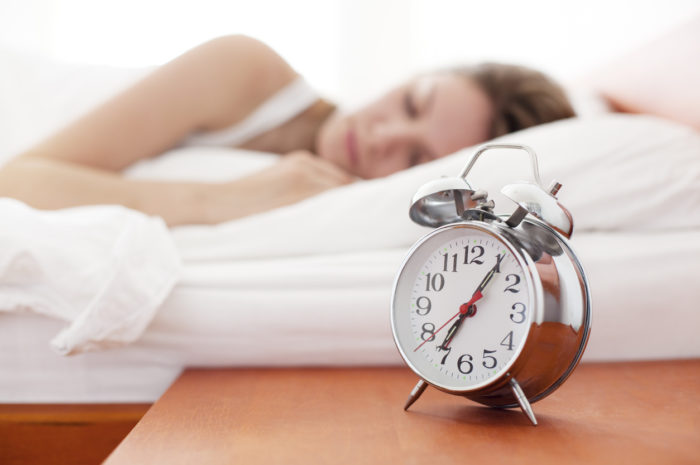Don’t Lose Sleep over Daylight Saving Time: Seven Sleep Tips to Help You Make Your Hours Count

As clocks spring forward this weekend for Daylight Saving Time, we’ll all be losing an hour of sleep. Learn how you can combat this annual sleep disturbance with these seven tips to a better night's rest from our expert Dr. Carol Ash, Director of Sleep Medicine at Meridian Health.
- Go Red Before Bed.Change your bedtime ritual by adding Montmorency tart cherries to your routine. Get started by drinking a glass of Montmorency tart cherry juice in the evening before you go to bed for seven consecutive days. It’s easy to incorporate Montmorency tart cherries into your everyday routine. They’re available year-round in dried, frozen and juice forms (including juice concentrate), at a variety of retailers across the country.
- Patience is a Virtue. Although it is just one hour difference, the transition during Daylight Saving Time can negatively impact your sleep. While gaining an hour in the fall is generally an easier transition, as clocks spring forward, this change in your sleep schedule can affect you for up to a week. Be patient. It can take you a few days to adjust.
- Set Your Internal Alarm. The timing of sleep is critical for a good night sleep and keeping the same wake up time everyday helps to set your biological clock that controls rhythms for wake and sleep. As you make the shift for Daylight Saving Time, start early. If you plan ahead and adjust your bedtime and wake up time by 15 minutes a night, the transition will be much easier.
- Tossin’ and Turnin’ All Night? This is particularly common when transitioning to a new time. If you toss and turn for more than 15 minutes, get up out of bed and do a non-stressful activity, like housework or reading a non-work-related book.
- Be Anti-Social. The screens from gadgets can emit blue light that suppresses the sleep hormone melatonin causing alertness, so forget about social media before bed. Keep the room quiet, dark and cool, creating a calm sanctuary.
- Stretch It Out. Before bed, try closing your eyes and stretching out your breaths. Extend your inhale and exhale each for a count of three and try to get rid of any thoughts that come into the mind. Visualize your favorite vacation or a special time with a friend or family member.
- Keep Up Your Sleep “Hygiene.” Sleep “hygiene” is a term medical professionals use to reference behaviors that are effective for good sleep at night. Paying attention to these tips is all the more important during a time of change:
- Wear an eye mask to block unwanted light and consider using earplugs to block outside noise; especially in an urban environment.
- Aromatherapy can ease sleep onset. Various scents, like lavender, have been found to have relaxation benefits. Try gently massaging lavender oil on your temples.
- Decompress from stress with exercise. The National Sleep Foundation Sleep in America Poll 2013 found that exercise is good for improving sleep patterns.
- Avoid spicy/heavy foods during dinner; try to eat most of your calories during breakfast and lunch, and stay away from too much caffeine in the afternoon.
Dr. Carol Ash
Carol Ash, DO, is a board-certified general internist, fellowship-trained pulmonary, critical care and sleep medicine specialist with more than 15 years’ experience in clinical medicine. Currently, Dr. Ash is the director of Sleep Medicine at Meridian Health in New Jersey.


